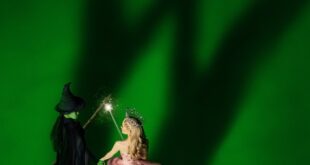The 1960 film Purple Noon was originally released in France under the title Plein Soleil. Directed by René Clément, it was the first adaptation of Patricia Highsmith’s 1955 novel The Talented Mr. Ripley. That was the title of writer-director Anthony Minghella’s better-known 1999 adaptation of the novel. As is frequently the case, cineastes generally seem to prefer the earlier version. Though previously available on standard DVD, Purple Noon arrives in high definition courtesy of The Criterion Collection.
On the surface, the set-up is quite simple. Tom Ripley (Alain Delon) has been tasked with persuading Philippe Greenleaf (Maurice Ronet) to return to the United States. If he succeeds, Tom will be financially compensated by Philippe’s father. Tom and Philippe are friends, but the true nature of their friendship is somewhat of a mystery that unfolds throughout the film’s first act. Not at all concerned about his father’s wishes, Philippe lives a life of leisure with his girlfriend Marge (Marie Laforêt). Clearly envious, Tom plots to take everything from Philippe. He’s after far more than the senior Mr. Greenleaf’s payout. The bigger prize can be had by literally replacing Philippe.
Further plot divulgences require a spoiler alert, so consider yourself warned. If you’ve already seen Minghella’s film, Noon will give you serious déjà vu. Tom eliminates Philippe in an act of shocking, sudden violence. From that point on, he attempts to cover his tracks while absorbing the trappings of Philippe’s life. Complicating matters significantly is Philippe’s friend Freddie Miles (Billy Kearns), a variable that Tom hadn’t factored into his calculations. He’s also at risk for slipping up in his forged correspondence (as Philippe) with Marge, who is naturally worried about her boyfriend’s abrupt disappearance.
For my money, Minghella’s Mr. Ripley presented a deeper vision of the characters, layered with considerably more nuance. In his film, Tom is a repressed, self-loathing homosexual. None of this is present in Noon, which offers a more straightforward version of the character as a sociopath. Furthermore, Jude Law was astoundingly charismatic in his portrayal as Greenleaf (whose first name, true to the source novel, is Dickie in the ’99 film). As played by Ronet, Philippe is hardly the kind of person anyone would go out of their way to befriend. He’s a rich, spoiled bore. In Minghella’s film, even setting aside the homosexual subtext, anyone who has ever felt like a misunderstood loner can easily identify with the desire to be accepted by someone as exciting and magnetic as Dickie.
None of this is to say that Purple Noon has been rendered obsolete by the ’99 adaptation. At 115 minutes, it’s far tighter than the later film’s somewhat bloated 139 minutes. As a pure suspense thriller, Noon is preferable. But it’s clearly more concerned with the nuts-and-bolts of how Tom will evade law enforcement and avoid punishment for his crimes. The Minghella film is interested in the motivations behind Tom’s actions. Almost by default, Noon ends up being the more ambiguous of the two films, simply because it doesn’t evoke the mixture of empathy and revulsion that Mr. Ripley aims for.
Criterion presents Purple Noon on Blu-ray framed at 1.66:1. The 1080p transfer was made utilizing the original camera negative. For color reference, two original 35mm prints were used (as stated in the booklet). The results are strong, offering a film-like image that is relatively sharp and detailed. The transfer is free of artifacts and the negative was impressively cleaned up to remove any dirt or scratches. Audio is available only in simple, uncompressed 1.0 mono. A 35mm optical track served as the source of the remaster. The mix is clean and clear, presenting no problems with dialogue, music (by Nino Rota), or effects.
Don’t expect a fully-loaded special edition, but there are some useful extras included. The centerpiece is a brand new interview with Denitza Bantcheva, a René Clément expert. It’s just under a half-hour and covers various aspects of Clément’s career, with a focus on Noon. The most interesting piece is a vintage 20-minute interview with Ripley novelist Patricia Highsmith. We get some interesting insight into the conception of her novels. There’s also a 10-minute vintage interview with Alain Delon. The booklet includes some worthwhile reading, with an essay about the film and a vintage interview with Clément.
Clément’s directorial style with Purple Noon is minimalist. He moves the plot along in brisk, functional fashion, never attempting to attract or repel his audience. It’s a thriller in a far purer sense than Minghella’s take on the material. Clément’s tale of Tom Ripley is kind of a Rorschach test, with the director presenting the facts of the story. He allows the viewer to formulate his own take without moralizing.
 Blogcritics The critical lens on today's culture & entertainment
Blogcritics The critical lens on today's culture & entertainment


